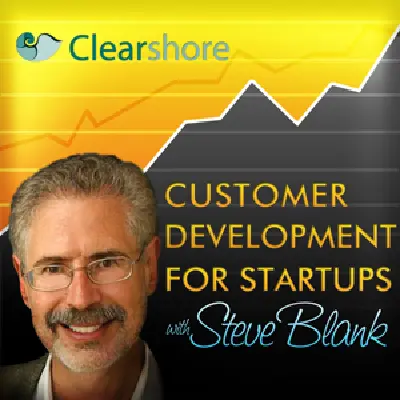
Steve Blank Podcast
292 episodes Last Updated: Jun 25, 25
Episodes
We just finished our 10th annual Hacking for Defense class at Stanford.
What a year.
Hacking for Defense, now in 70 universities, has teams of students working to understand and help solve national security problems. At Stanford this quarter the 8 teams of 41 students collectively interviewed 1106 beneficiaries, stakeholders, requirements writers, program managers, industry partners, etc. – while simultaneously building a series of minimal viable products and developing a path to deployment.
Jun 20, 2025
Teaching National Security Policy with AI
International Policy students will be spending their careers in an AI-enabled world. We wanted our students to be prepared for it. This is why we’ve adopted and integrated AI in our Stanford national security policy class – Technology, Innovation and Great Power Competition.
Here’s what we did, how the students used it, and what they (and we) learned.
US global dominance in science was no accident, but a product of a far-seeing partnership between public and private sectors to boost innovation and economic growth.
The U.S. has spent the last 70 years making massive investments in basic and applied research. Government funding of research started in World War II driven by the needs of the military for weapon systems to defeat Germany and Japan. Post WWII the responsibility for investing in research split between agencies focused on weapons development and space exploration (being completely customer-driven) and other agencies charted to fund basic and applied research in science and medicine (being driven by peer-review.)
May 12, 2025
How the U.S. Became A Science Superpower
Prior to WWII the U.S was a distant second in science and engineering. By the time the war was over, U.S. science and engineering had blown past the British, and led the world for 85 years.
A minimum viable product (MVP) is not always a smaller/cheaper version of your final product. Defining the goal for a MVP can save you tons of time, money and grief.
Sometimes financial decisions that are seemingly rational on their face can precipitate mass exodus of your best engineers.
Asking, “Can I have coffee with you to pick your brain?” is probably the worst possible way to get a meeting with someone with a busy schedule. Here’s a better approach.
Apr 19, 2025
Lying on your resume
It’s not the crime that gets you, it’s the coverup.
Apr 15, 2025
Careers Start by Peeling Potatoes
Listening to my the family talk about dividing up the cooking chores for this Thanksgiving dinner, including who would peel the potatoes, reminded me that most careers start by peeling potatoes.